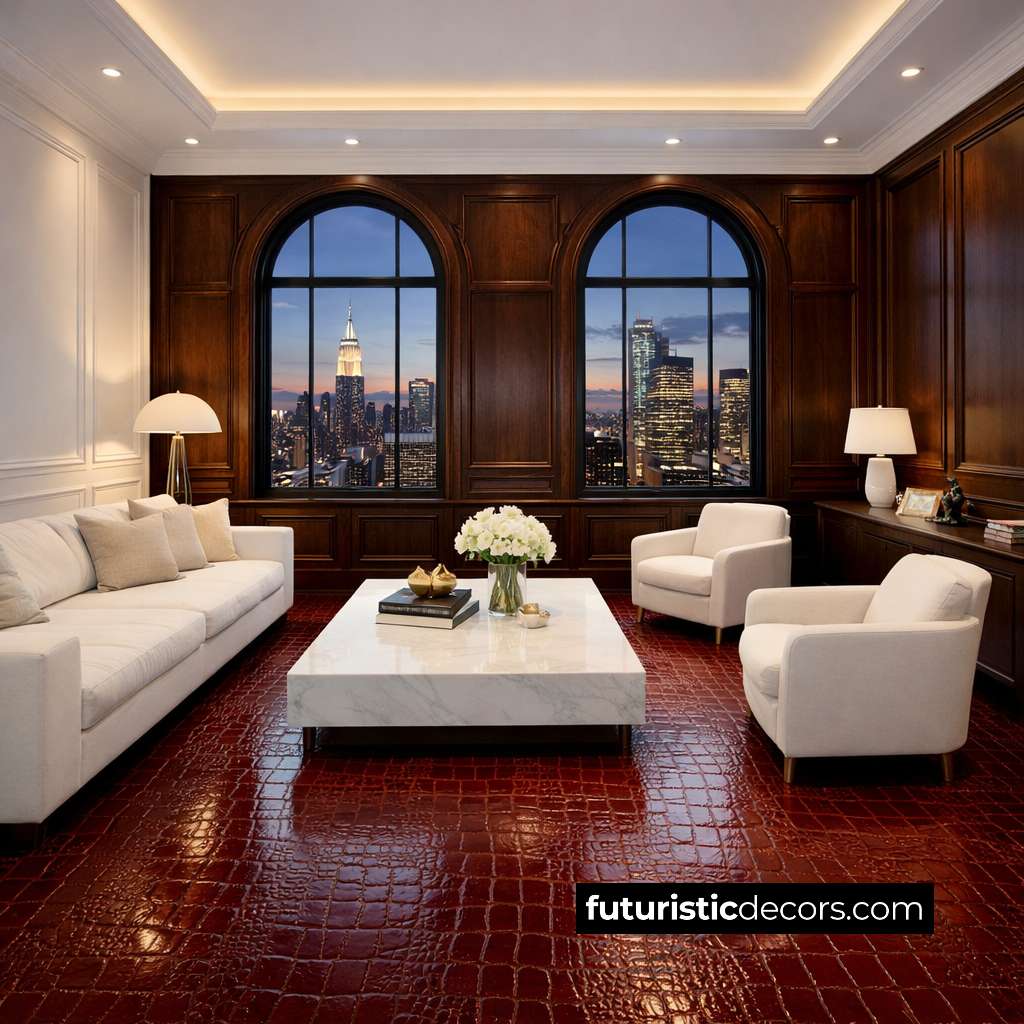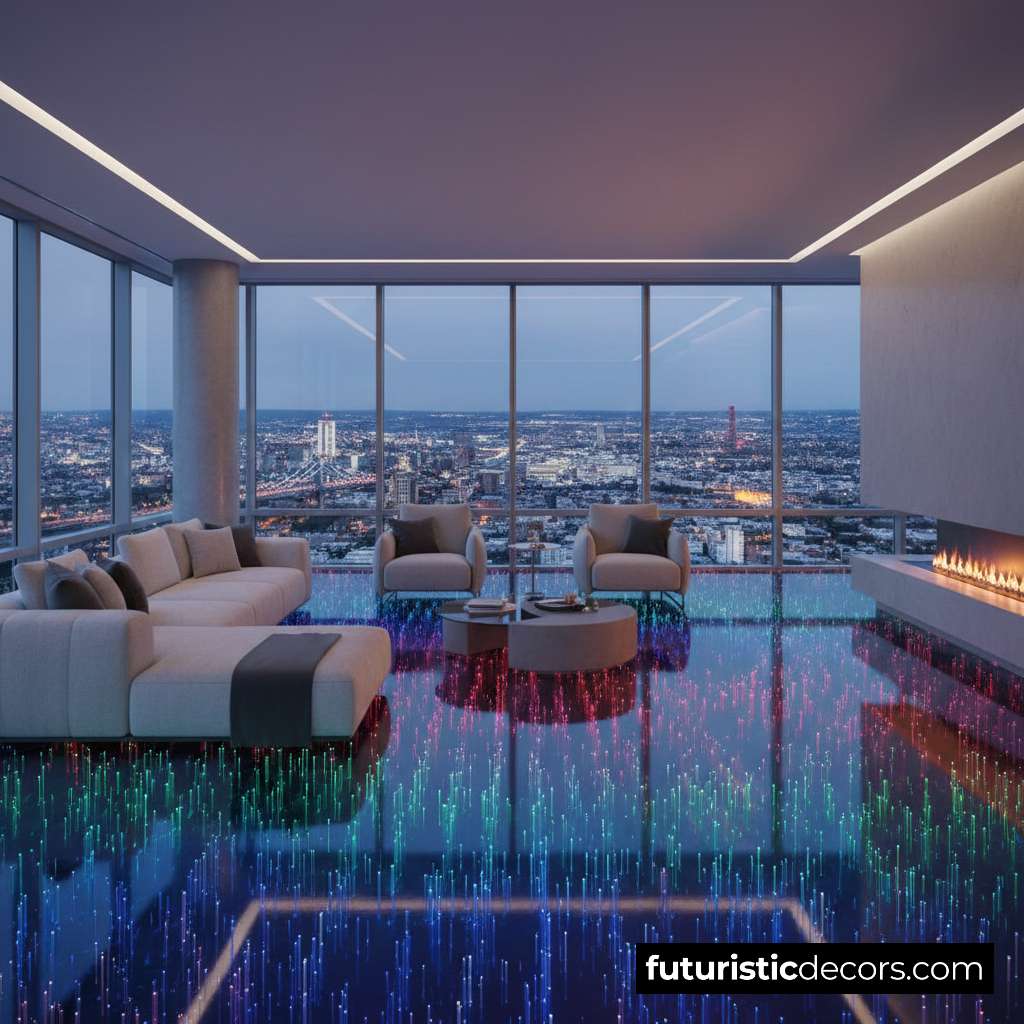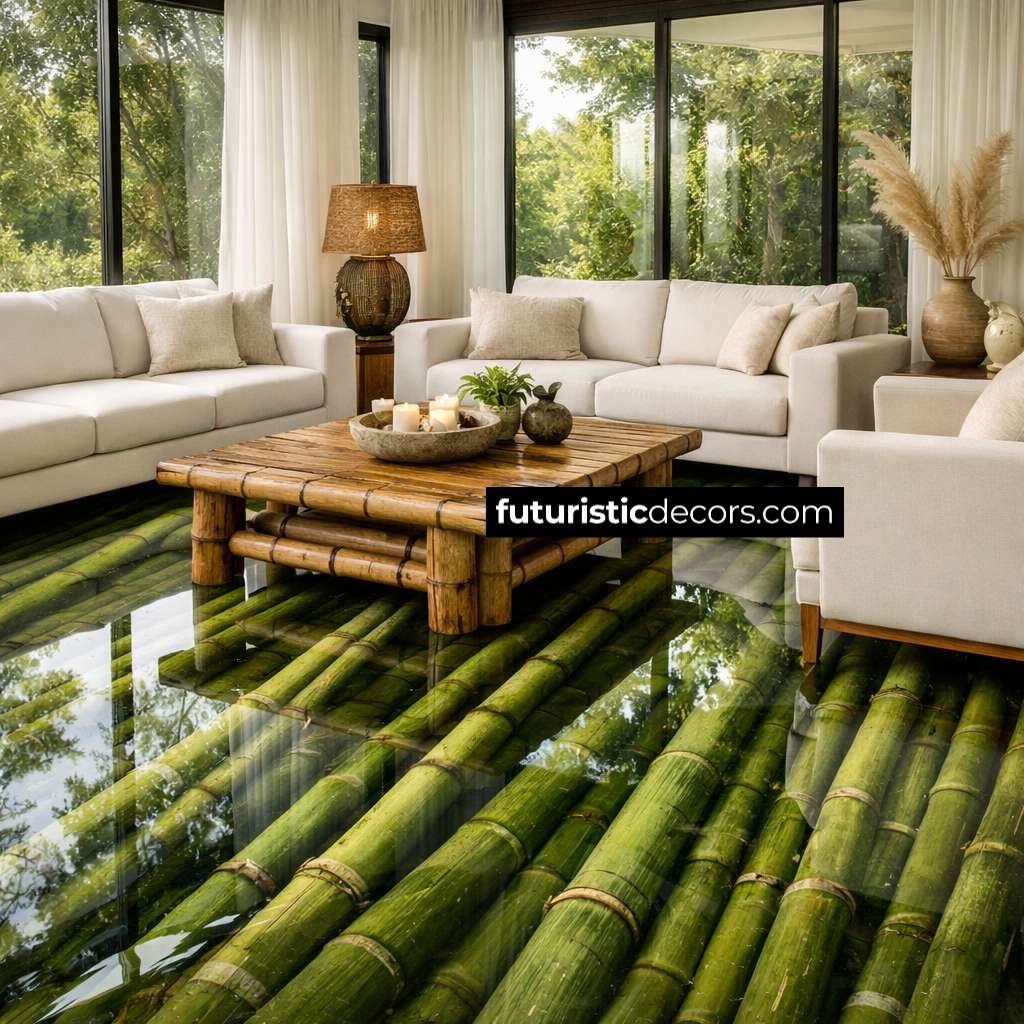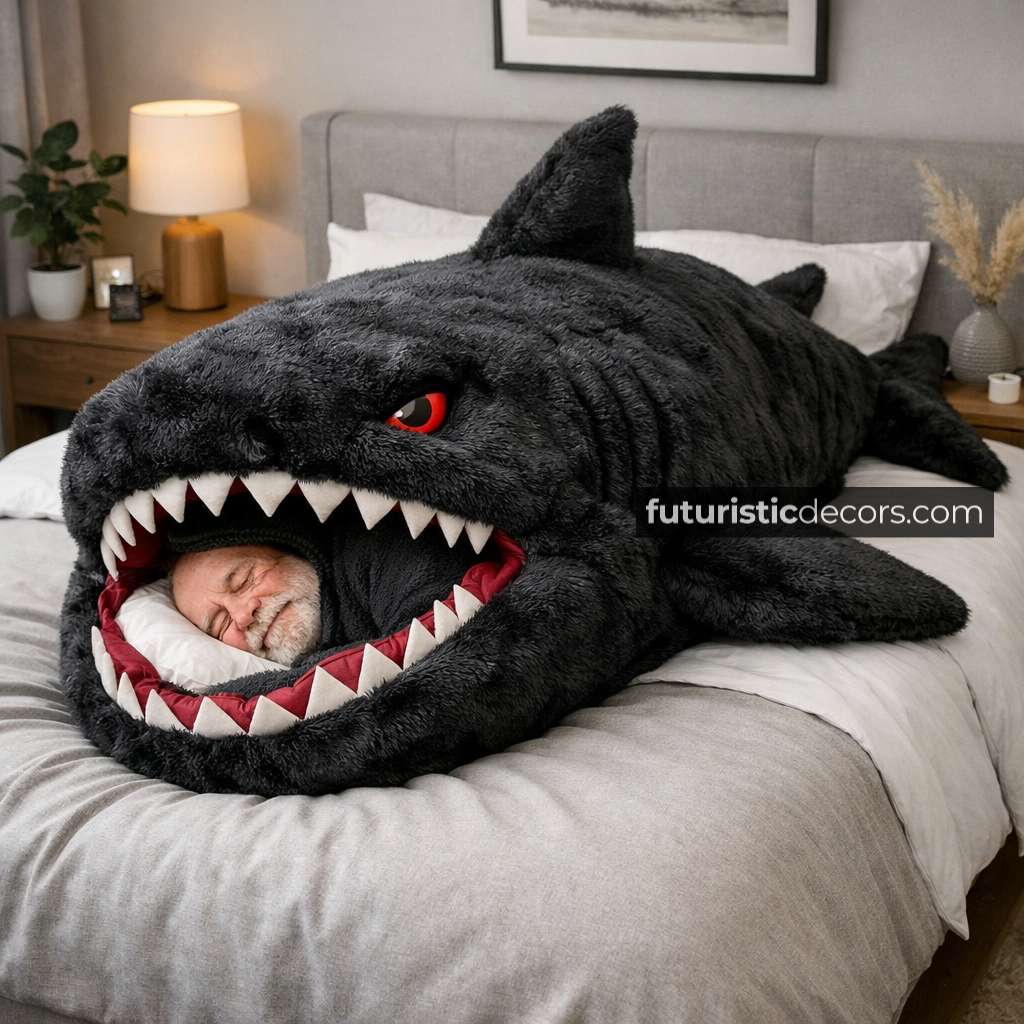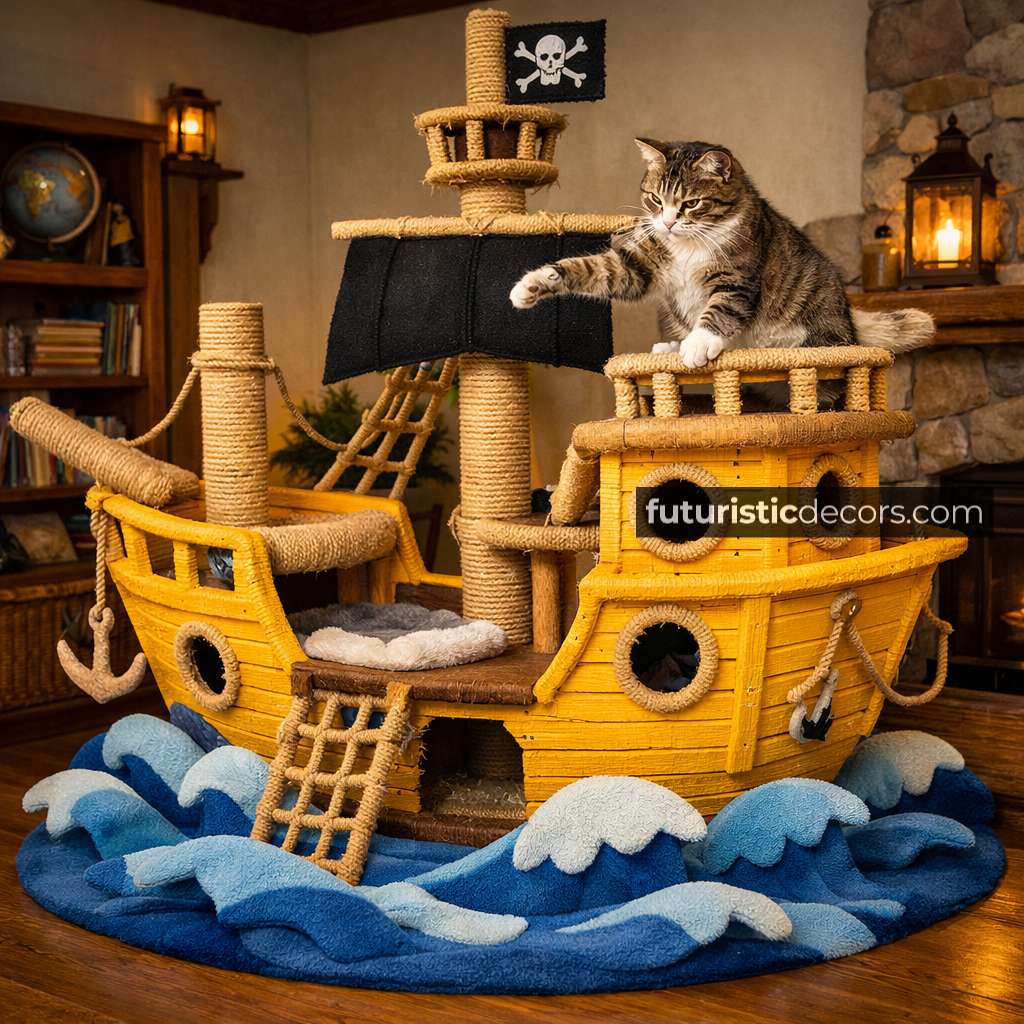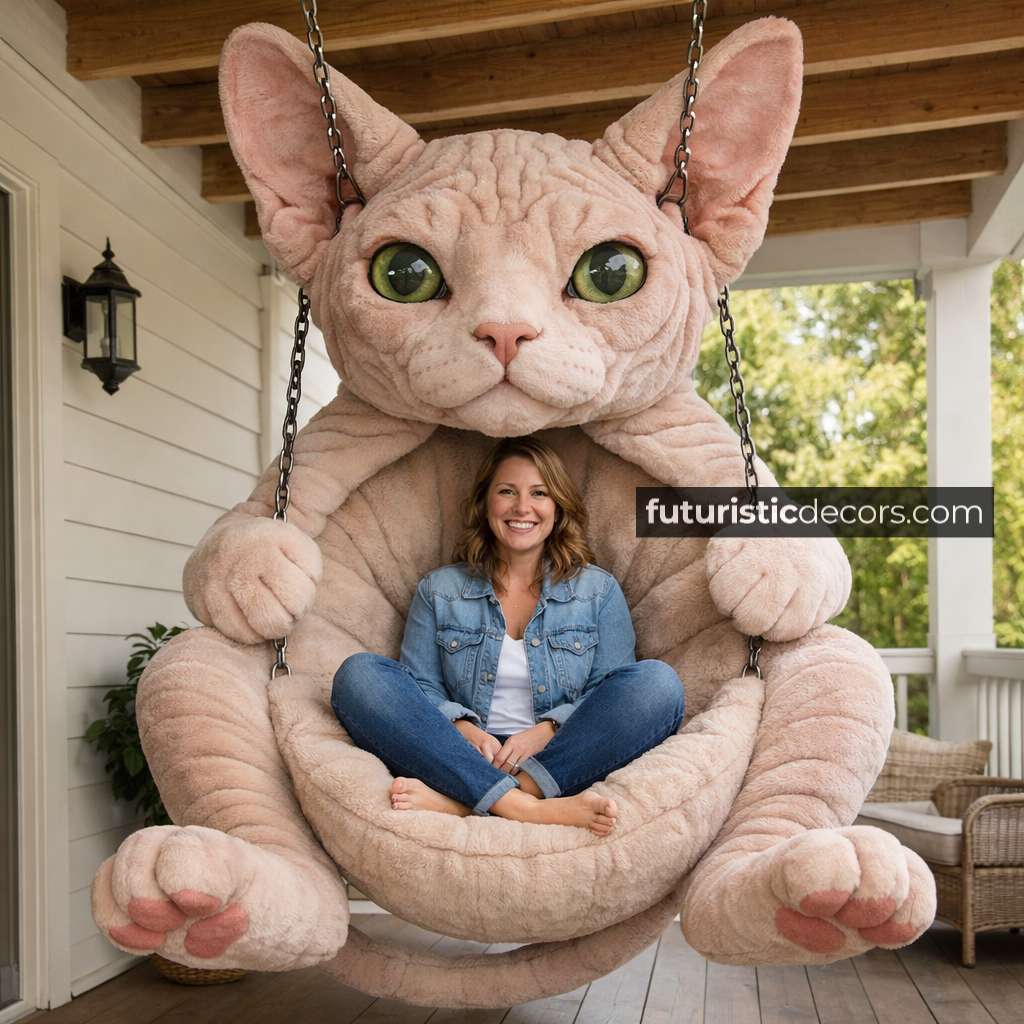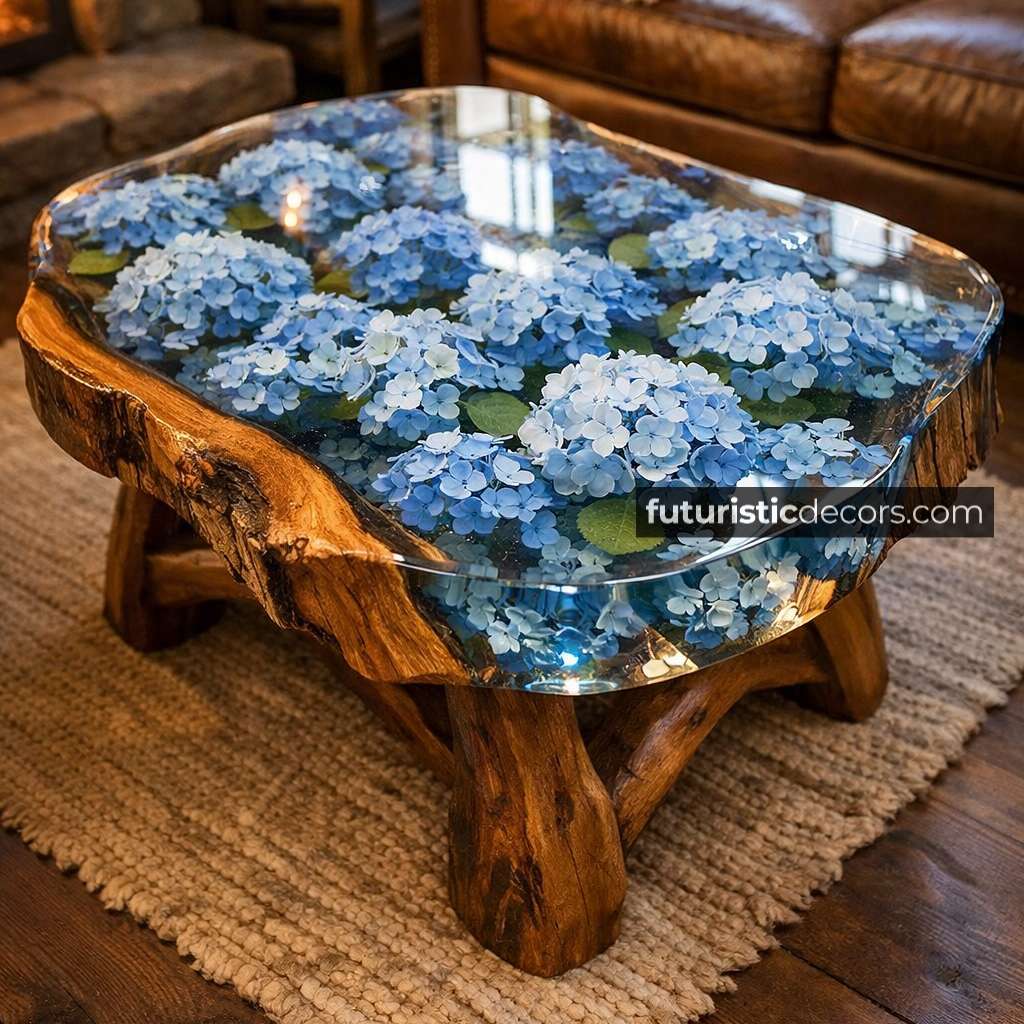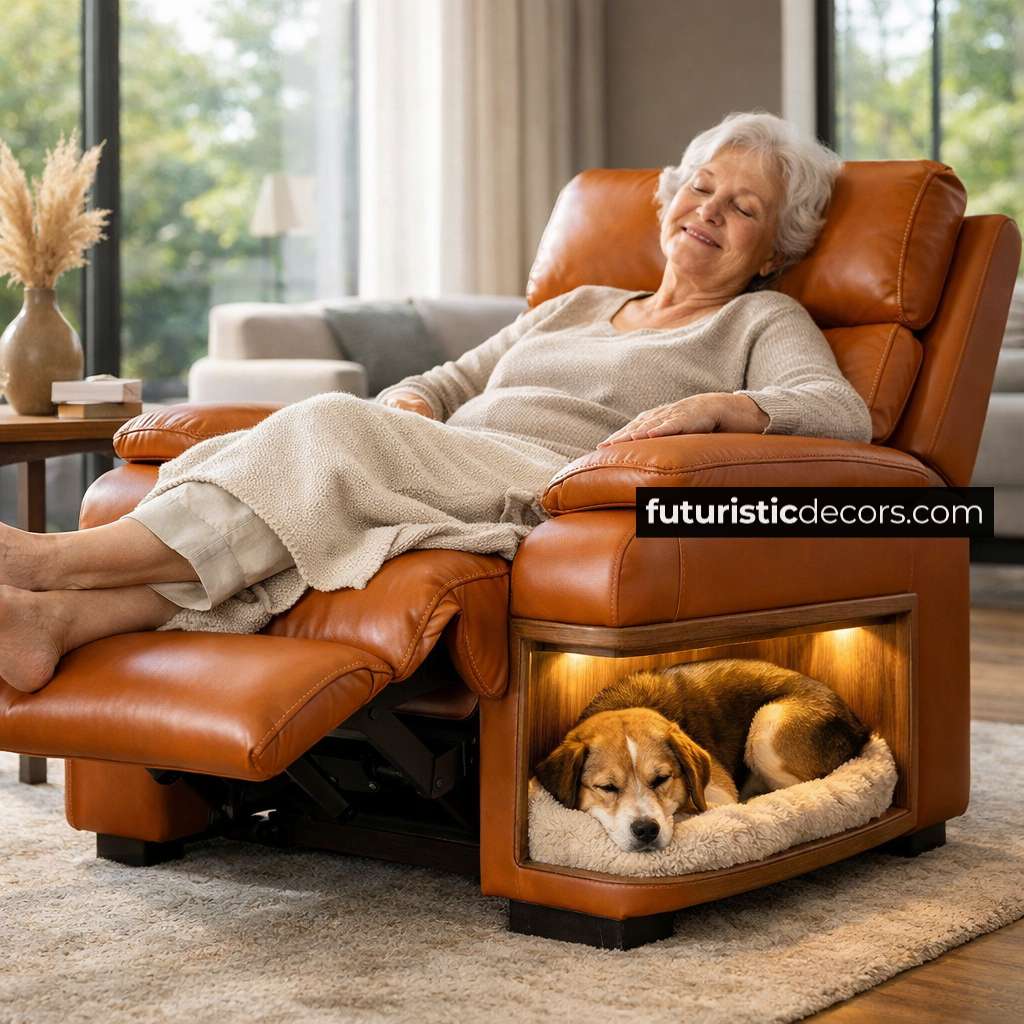The Evolution of Staircase Design
To understand the significance of the Active Scene Staircase, it’s essential to trace the evolution of staircase design. Traditionally, staircases were designed with a focus on functionality and structural integrity. Their design varied from simple, utilitarian steps to more ornate versions in grand buildings, but their primary role remained the same: to provide access between different levels.
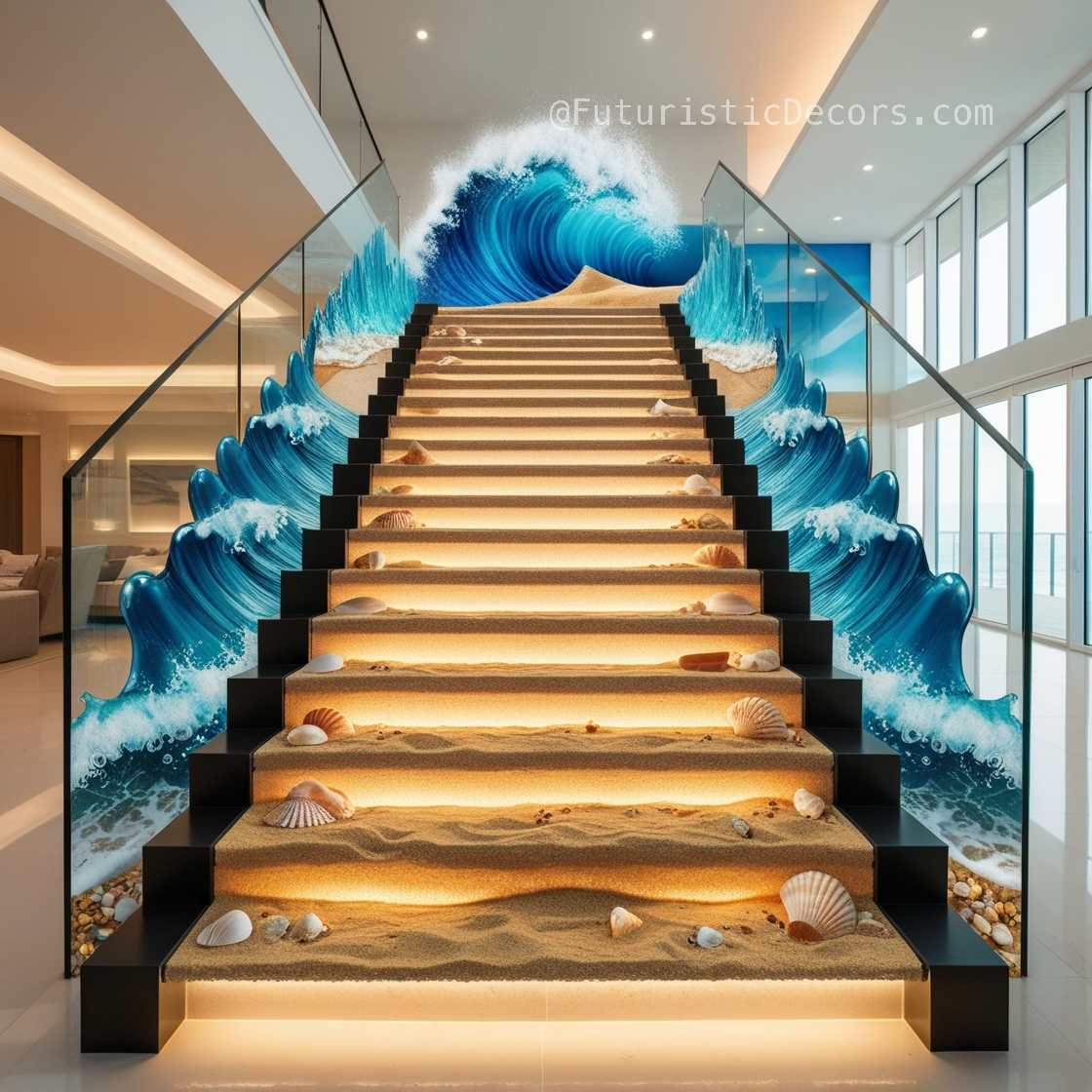
As architectural design evolved, so did the aesthetics of staircases. The Industrial Revolution introduced materials like steel and glass, allowing for more open and airy designs. The mid-20th century saw the rise of minimalist and modernist styles, emphasizing clean lines and simplicity. However, despite these advancements, staircases largely remained static elements within a space, serving their intended purpose without much flair.
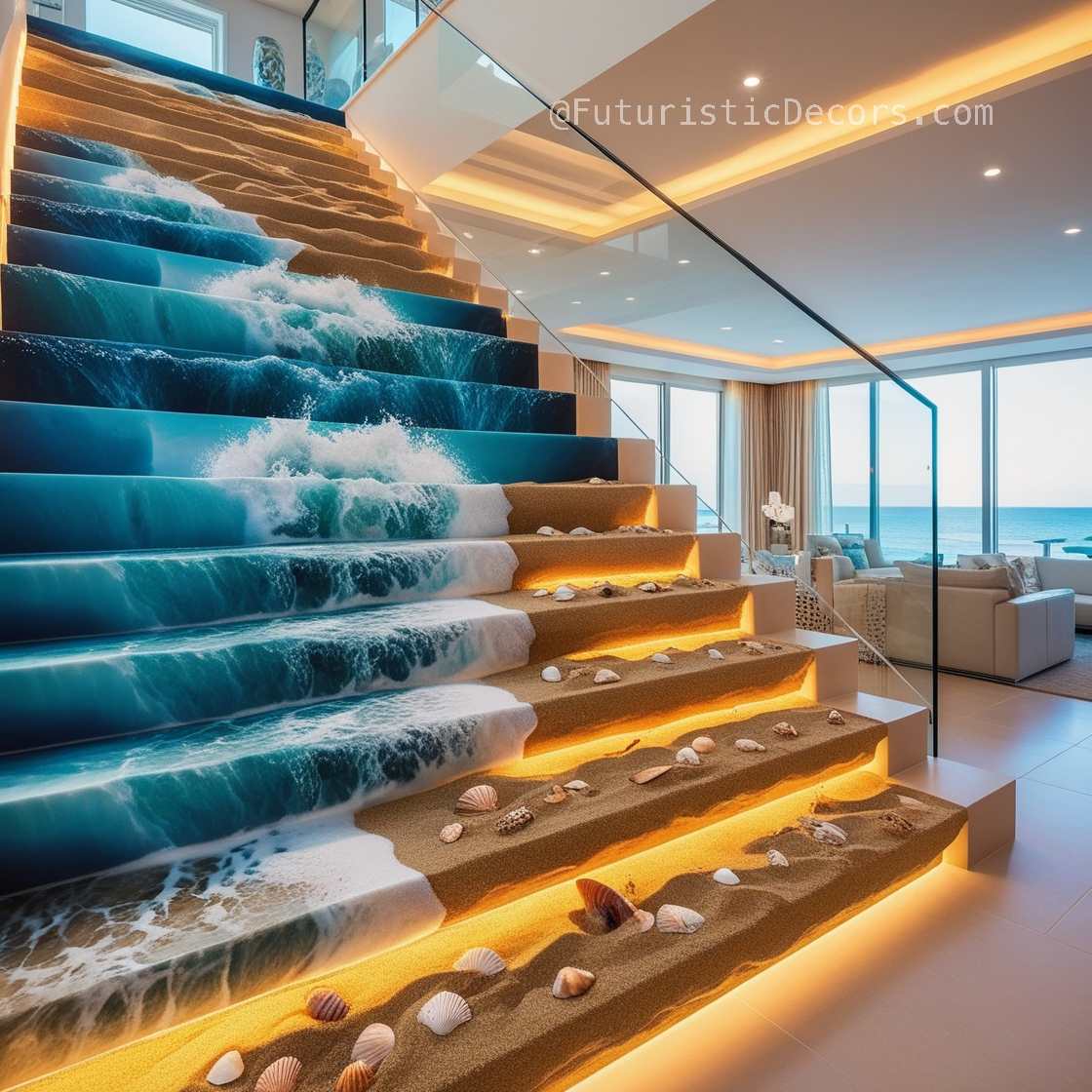
The introduction of the Active Scene Staircase marks a significant departure from this tradition. By integrating technology, interactive elements, and artistic design, the Active Scene Staircase transforms the staircase from a mere passageway into a dynamic focal point that engages and interacts with its users.
Defining the Active Scene Staircase
The term Active Scene Staircase encapsulates a new breed of staircases that blend functionality with artistic expression and interactive technology. These staircases are designed not just to facilitate movement but to enhance the user experience through various sensory and interactive elements. Here’s a deeper look into what constitutes an Active Scene Staircase:
1. Interactive Elements
One of the defining features of an Active Scene Staircase is its interactive nature. This can be achieved through various means:
- Lighting: Incorporating LED lighting that responds to movement or changes in ambient light can create a dynamic visual experience. For instance, lights embedded in the steps can illuminate as someone ascends or descends, providing both safety and aesthetic appeal.
- Sound: Integrating sound systems that play ambient music or respond to footsteps can enhance the sensory experience. This could range from subtle background music to more interactive soundscapes that change based on movement patterns.
- Motion Sensors: Utilizing motion sensors to trigger changes in the staircase’s environment adds a layer of interactivity. This could involve adjusting lighting, triggering visual displays, or even altering the staircase’s physical properties, such as changing the incline or step height.
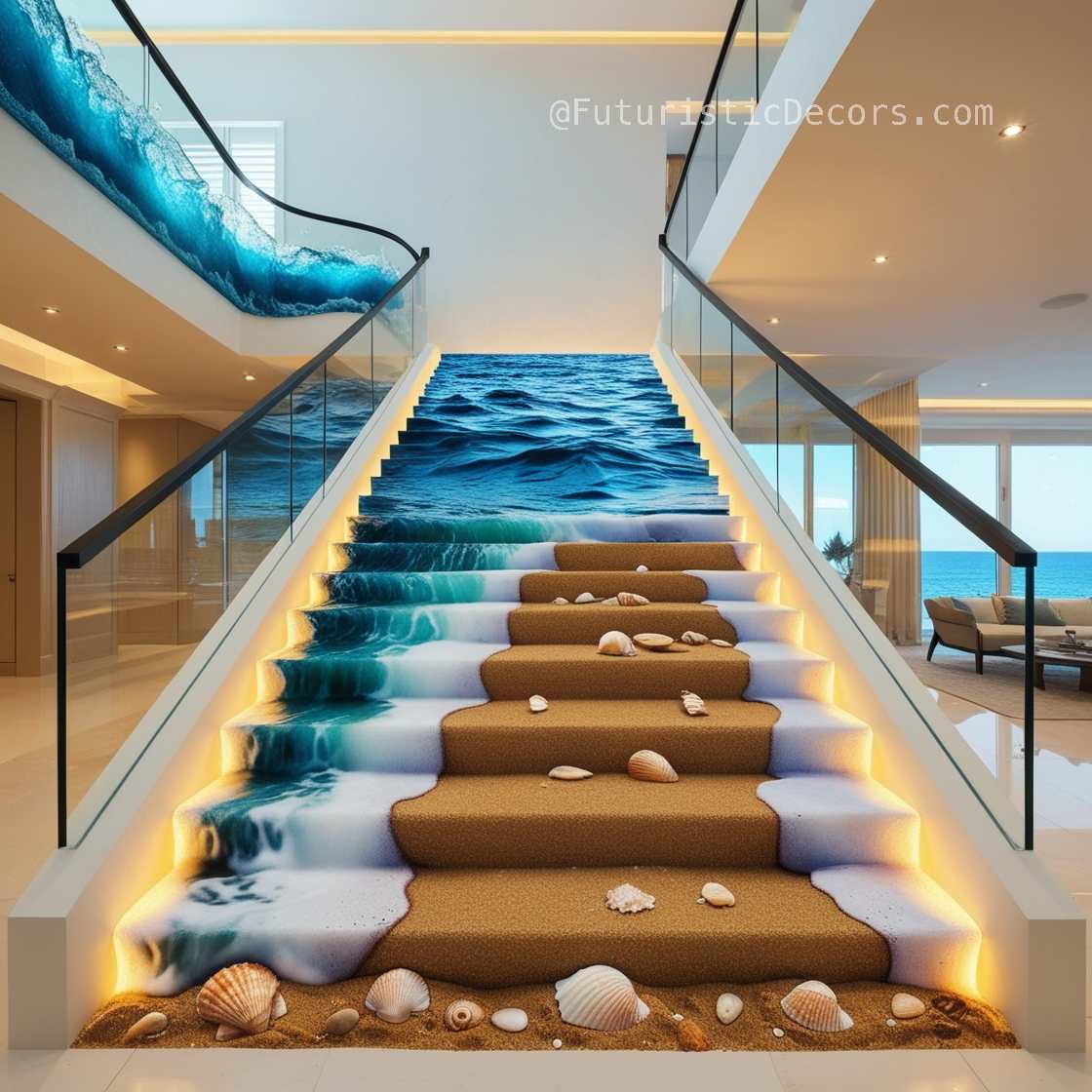
2. Artistic Design
The Active Scene Staircase places a strong emphasis on artistic design. This involves:
- Unique Materials: Using unconventional materials or innovative combinations of materials to create visually striking staircases. Examples include glass, metal, wood, and even recycled materials, each contributing to the overall aesthetic.
- Sculptural Forms: Designing staircases with flowing, organic shapes or geometric patterns can turn them into sculptural masterpieces. The form of the staircase itself becomes a piece of art, complementing the space it occupies.
- Customization: Tailoring the design to reflect the theme or style of the surrounding space ensures that the staircase harmonizes with its environment while still standing out as a focal point.
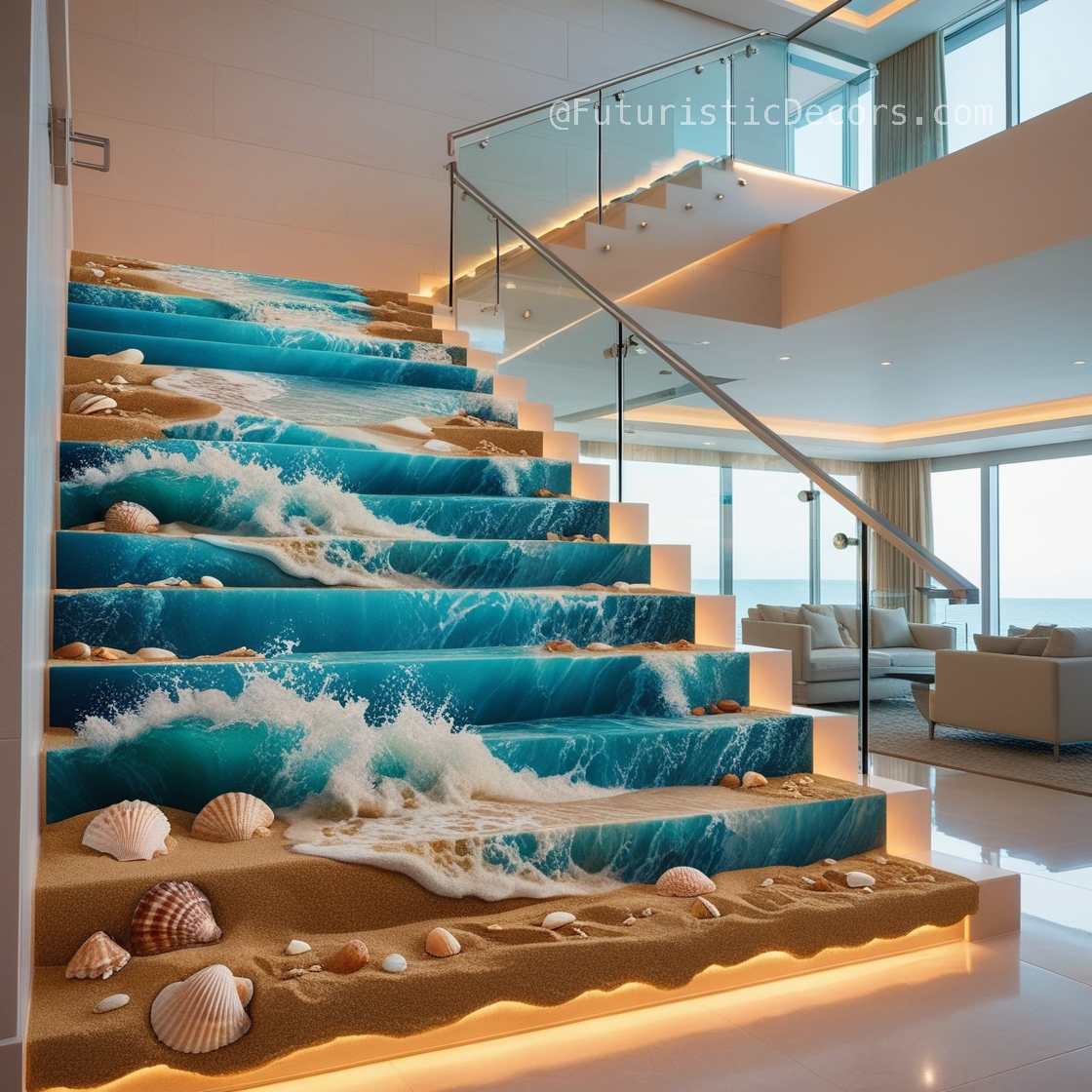
3. Technological Integration
Advanced technology plays a crucial role in bringing the Active Scene Staircase to life:
- Smart Controls: Incorporating smart home technologies allows users to control various aspects of the staircase, such as lighting, sound, and even the physical properties, through apps or voice commands.
- Augmented Reality (AR): Integrating AR can provide interactive experiences, such as projecting images or information onto the staircase surface, enhancing both functionality and engagement.
- Energy Efficiency: Utilizing energy-efficient technologies ensures that the staircase remains sustainable without compromising on its dynamic features.
Benefits of an Active Scene Staircase
The adoption of the Active Scene Staircase offers numerous advantages, both practical and aesthetic:
1. Enhanced Aesthetics
By transforming a functional element into a piece of art, the Active Scene Staircase elevates the overall design of a space. It serves as a conversation starter and a visual centerpiece, adding character and personality to homes, offices, and public spaces alike.
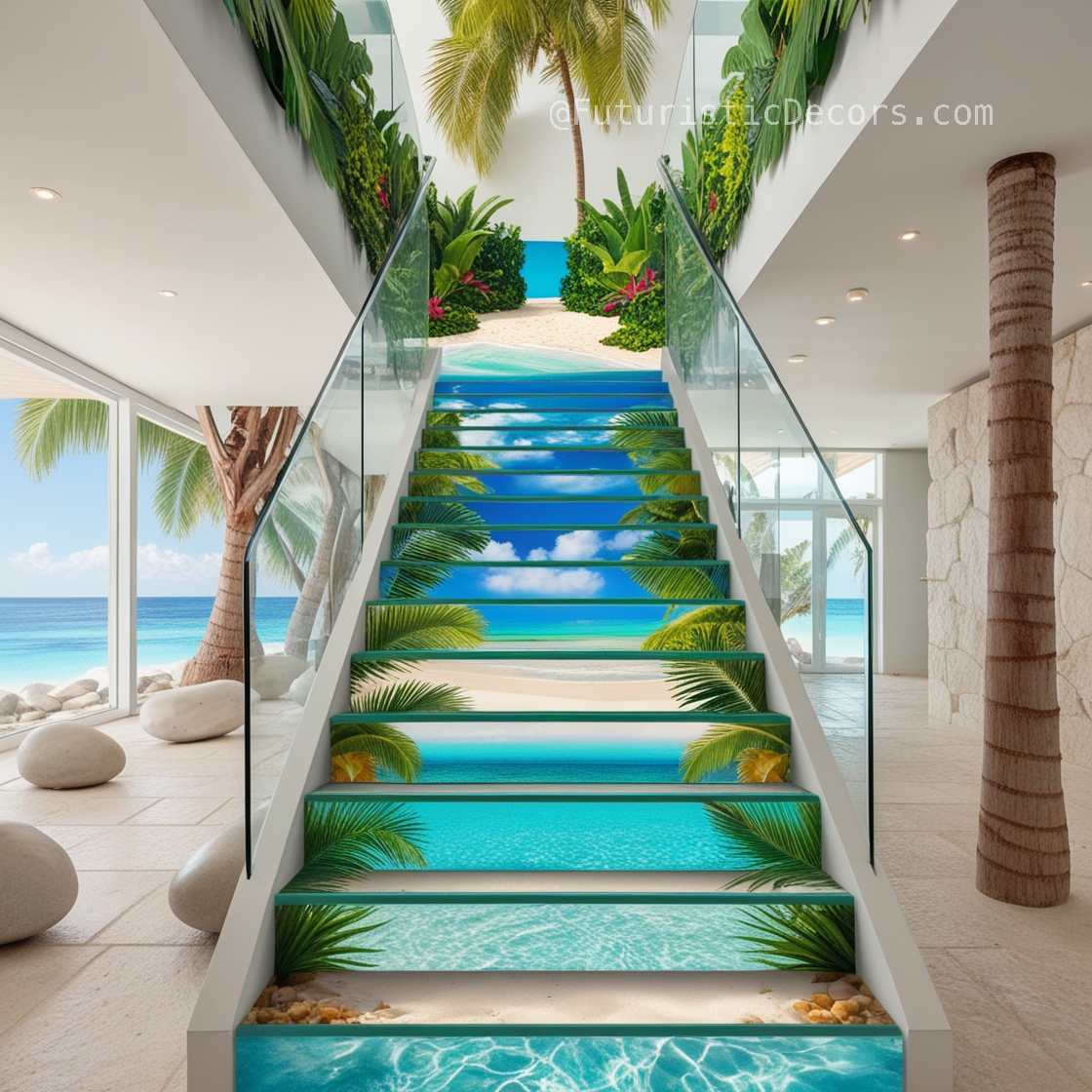
2. Increased Engagement
Interactive features engage users in a more meaningful way. Whether it’s responding to footsteps with light and sound or offering customizable settings, the staircase becomes an active participant in the user’s experience rather than a passive structure.
3. Improved Safety
Advanced lighting and motion-sensing technologies can enhance safety by providing better visibility during nighttime use or in low-light conditions. Features like automatic lighting and anti-slip surfaces can prevent accidents and ensure a safer environment.
4. Space Optimization
In spaces where aesthetics and functionality need to coexist without compromising on space, the Active Scene Staircase offers innovative solutions. Space-saving designs, such as spiral or floating staircases, combined with their interactive features, can maximize the utility of limited spaces while maintaining an open and airy feel.
5. Increased Property Value
A well-designed Active Scene Staircase can significantly boost the value of a property. Its unique and modern appeal makes it an attractive feature for potential buyers or tenants, setting the property apart in a competitive market.
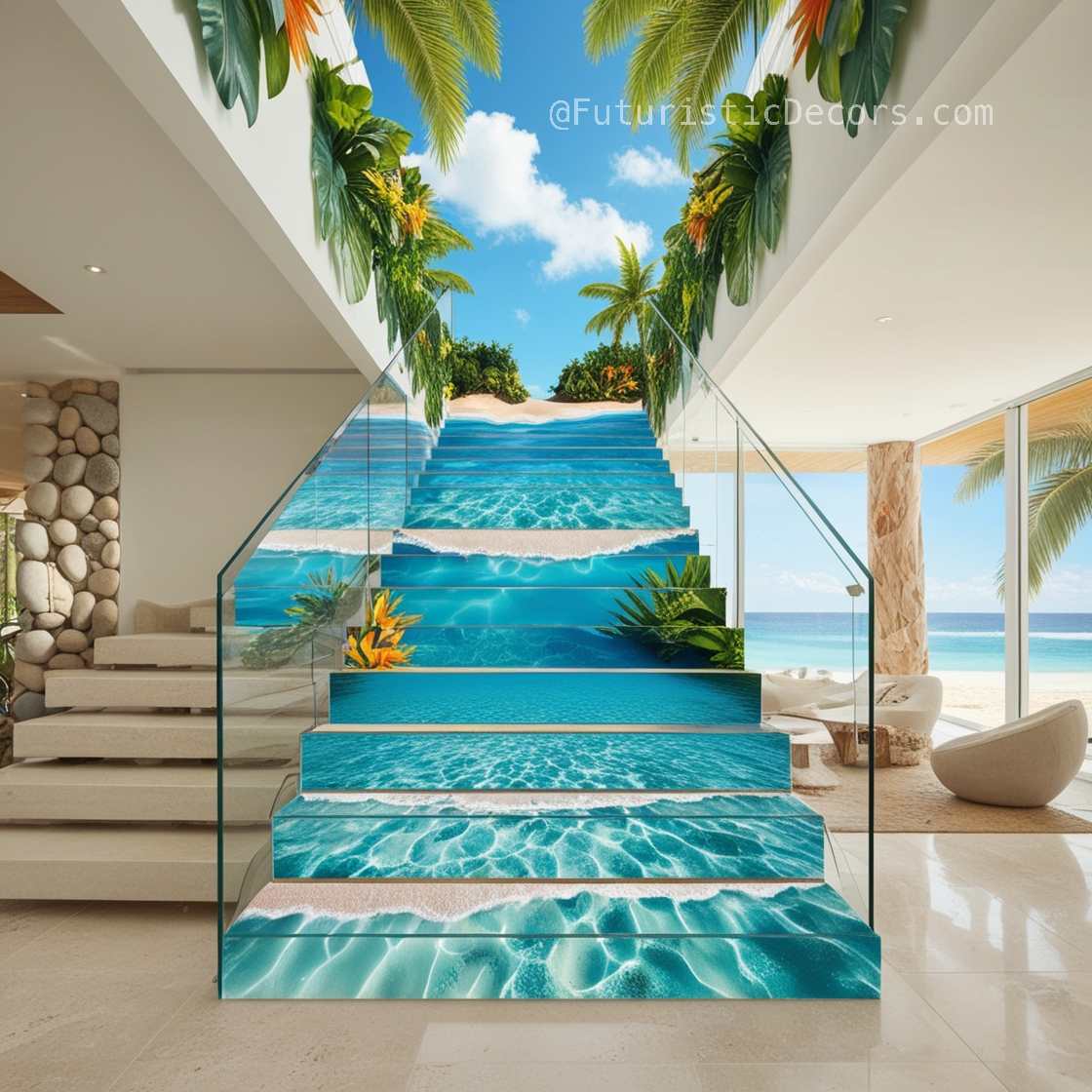
Design Principles of Active Scene Staircases
Creating an effective Active Scene Staircase requires careful consideration of various design principles. These principles ensure that the staircase not only serves its functional purpose but also achieves its artistic and interactive objectives.
1. Functionality and Accessibility
While the Active Scene Staircase is designed to be an artistic centerpiece, it must not compromise on functionality and accessibility. This involves:
- Ergonomic Design: Ensuring that the staircase is comfortable and easy to use, with appropriate step height and depth, handrails, and adequate lighting.
- Accessibility Standards: Adhering to accessibility standards to accommodate all users, including those with disabilities. This may involve incorporating features like tactile indicators, braille signage, or alternative pathways.
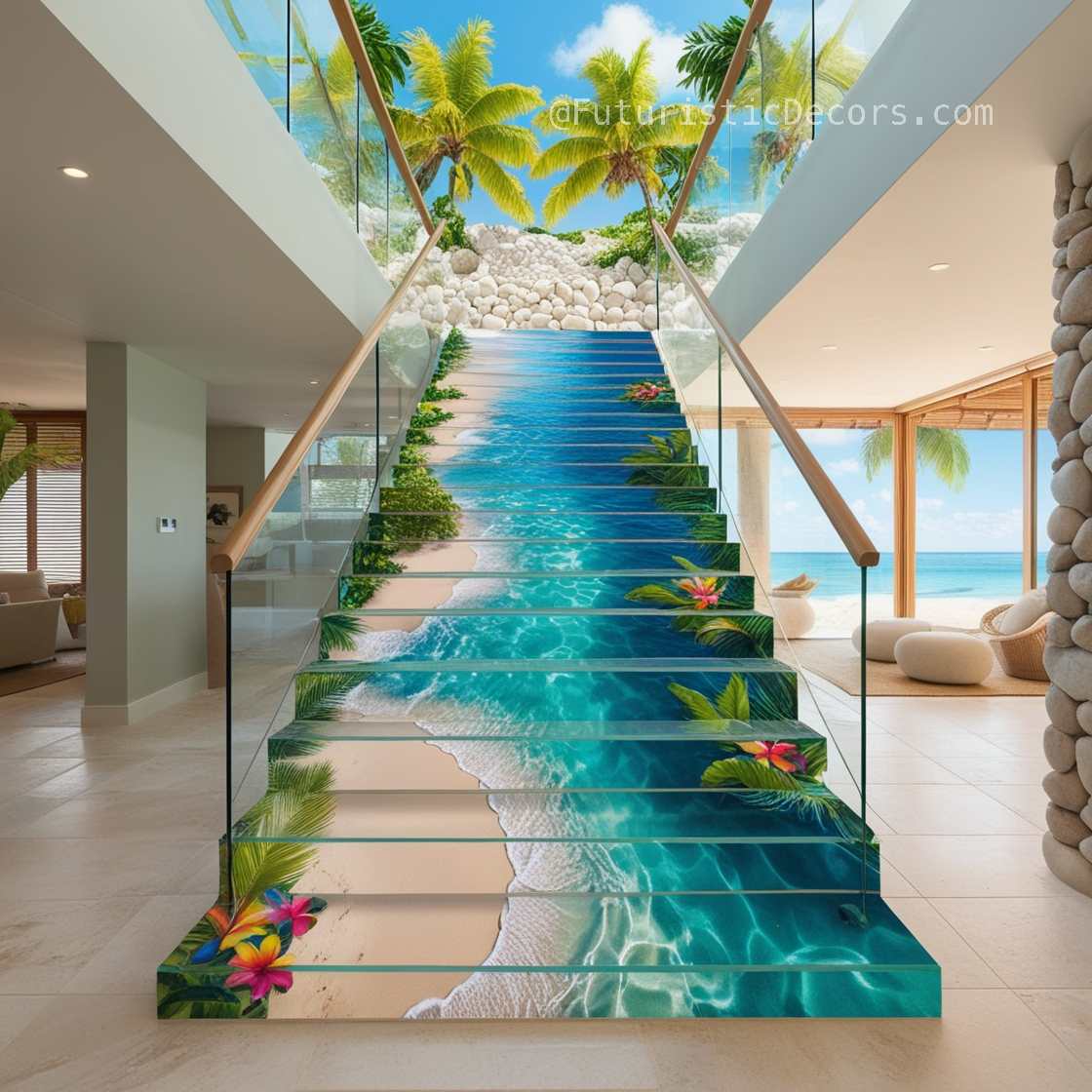
2. Integration with Surroundings
The staircase should harmoniously integrate with its surrounding environment. This means considering:
- Architectural Style: Matching or complementing the architectural style of the space, whether it’s modern, traditional, industrial, or eclectic.
- Color Scheme: Choosing colors that align with the overall color palette of the space, enhancing cohesiveness and visual appeal.
- Material Harmony: Selecting materials that resonate with other elements in the space, creating a unified and balanced look.
3. Technological Compatibility
Incorporating technology into the Active Scene Staircase requires ensuring compatibility and seamless integration:
- Infrastructure Requirements: Assessing the space’s infrastructure to support technological installations, such as power sources, data connections, and network capabilities.
- User Interface: Designing intuitive controls and interfaces that allow users to interact with the staircase’s features effortlessly.
- Maintenance and Upgradability: Planning for easy maintenance and potential future upgrades to keep the staircase’s technology current and functional.
4. Sustainability and Durability
Sustainability is a key consideration in modern design. For the Active Scene Staircase, this involves:
- Eco-Friendly Materials: Using sustainable and recyclable materials to minimize environmental impact.
- Energy Efficiency: Implementing energy-efficient technologies, such as LED lighting and low-power electronics, to reduce energy consumption.
- Durability: Ensuring that the materials and technologies used are durable and capable of withstanding regular use, minimizing the need for frequent repairs or replacements.
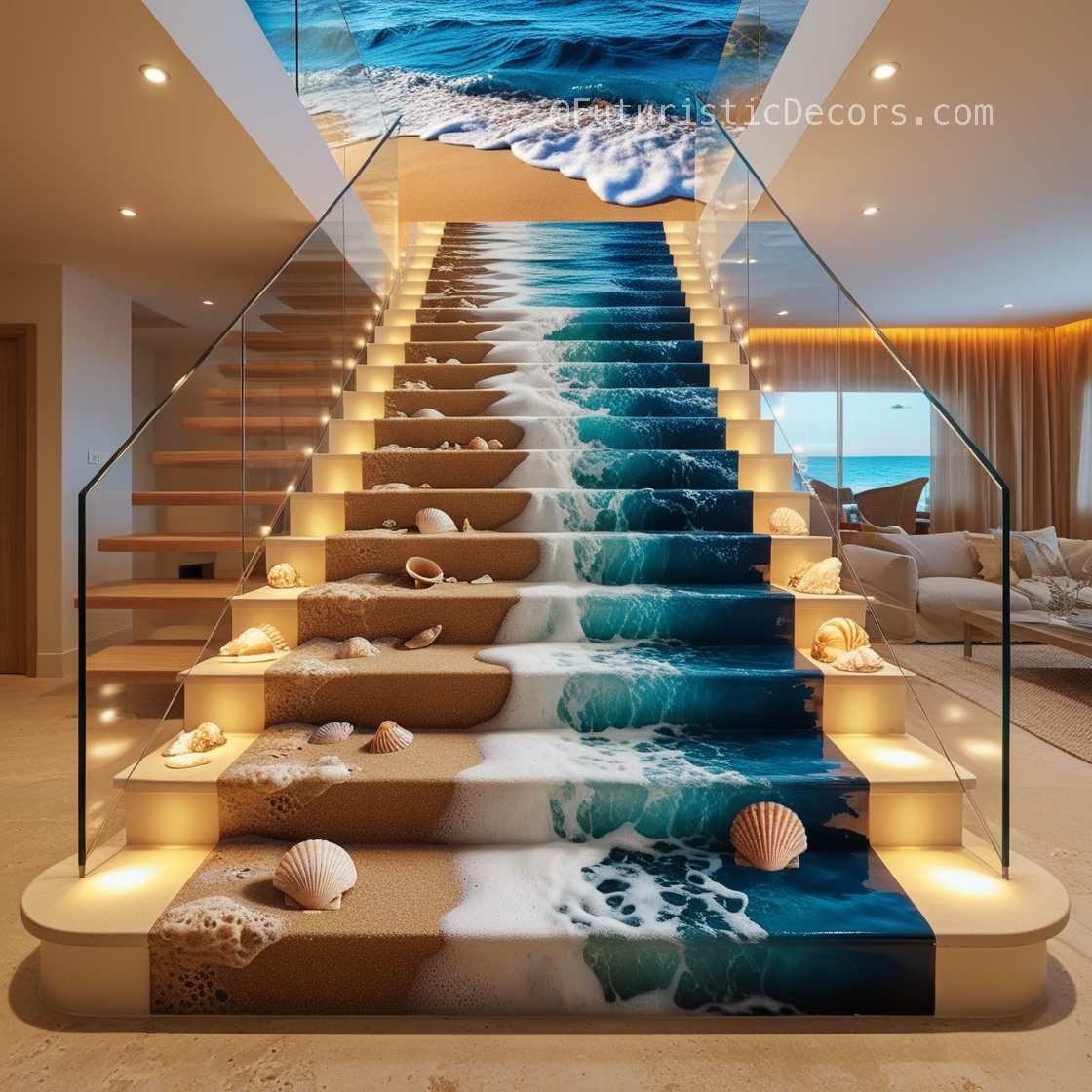
5. Artistic Expression
Artistic expression is at the heart of the Active Scene Staircase. This requires:
- Creativity: Encouraging innovative and creative designs that push the boundaries of traditional staircase aesthetics.
- Personalization: Allowing for customization to reflect the individual tastes and preferences of the space’s inhabitants or users.
- Storytelling: Designing the staircase in a way that tells a story or conveys a particular theme, enhancing its role as a piece of functional art.
Innovative Features of Active Scene Staircases
To truly embody the essence of functional art, Active Scene Staircases incorporate a variety of innovative features that set them apart from conventional staircases. Here are some of the standout features:
1. Dynamic Lighting Systems
Lighting plays a crucial role in enhancing the visual appeal and functionality of the Active Scene Staircase. Dynamic lighting systems can:
- Respond to Movement: Lights can illuminate step-by-step as a person ascends or descends, providing both guidance and a mesmerizing visual effect.
- Color Customization: Allow users to change the color scheme of the lights to suit different moods or themes, adding versatility to the space.
- Ambient Lighting: Create subtle ambient lighting that enhances the overall atmosphere without being overpowering.
2. Integrated Art Installations
Incorporating art into the staircase design elevates it from a mere structural element to a work of art. This can include:
Sculptural Elements: Adding sculptural features to the steps, railings, or surrounding walls to create a cohesive artistic theme.
Mural Walls: Designing the staircase walls with murals or paintings that complement the overall aesthetic and provide visual interest.
Projection Mapping: Utilizing projection technology to display dynamic art that can change over time or in response to user interaction.
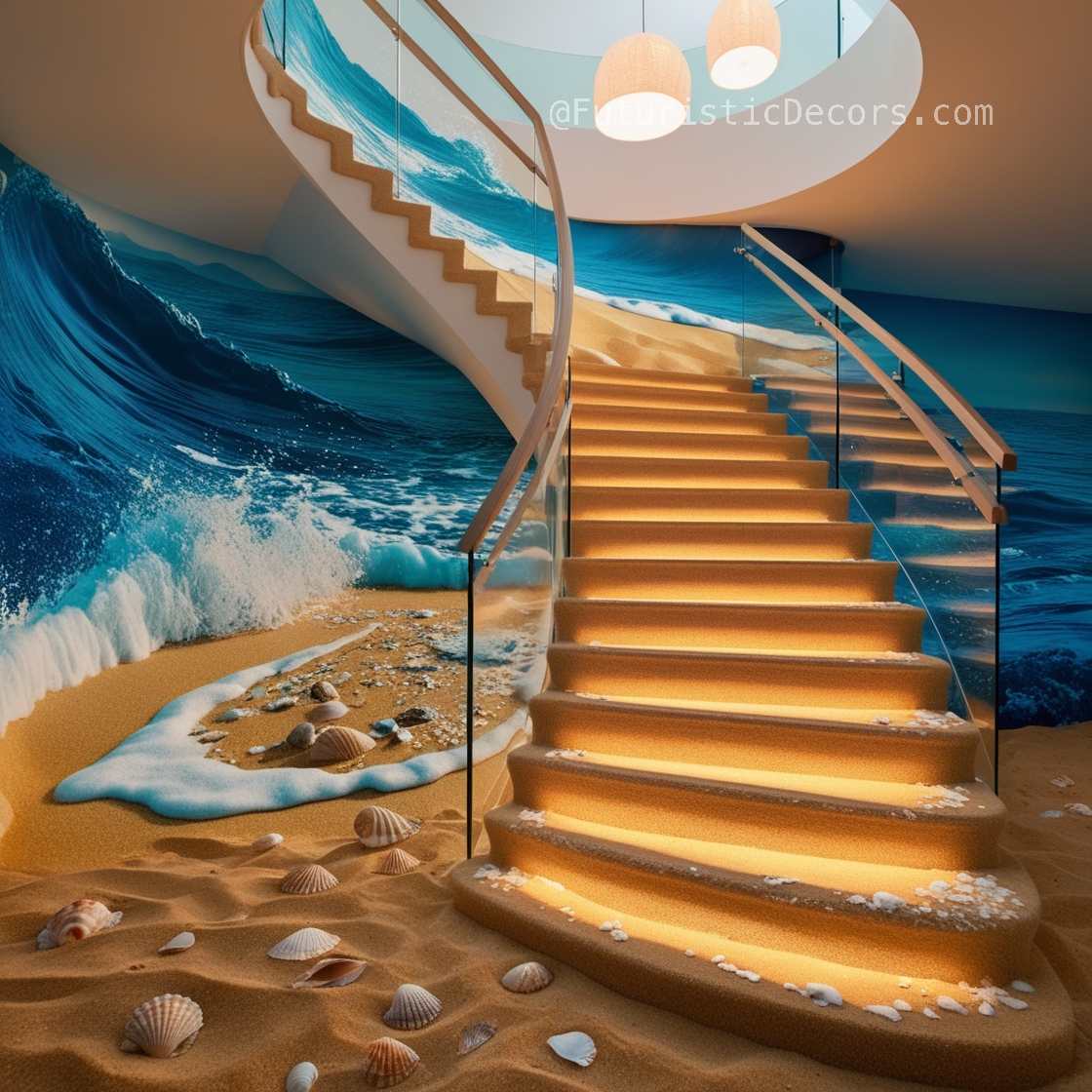
3. Interactive Surfaces
Interactive surfaces on the Active Scene Staircase engage users in unique ways:
Touch-Sensitive Steps: Steps that respond to touch by changing color, activating lights, or triggering sound effects.
Responsive Railings: Handrails equipped with sensors that can detect proximity or movement, allowing for interactive light displays or informational prompts.
Augmented Reality Integration: Surfaces that work with AR devices to provide immersive experiences, such as virtual displays or interactive storytelling.
4. Multi-Functional Spaces
The Active Scene Staircase can serve multiple functions beyond facilitating movement:
Display Areas: Utilizing the staircase space to showcase art, plants, or other decorative elements, turning it into a mini-gallery or living wall.
Seating Options: Incorporating seating areas within the staircase design, providing functional spaces for relaxation or social interaction.
Storage Solutions: Designing staircases with built-in storage, such as drawers or shelves, to maximize space utility without compromising aesthetics.
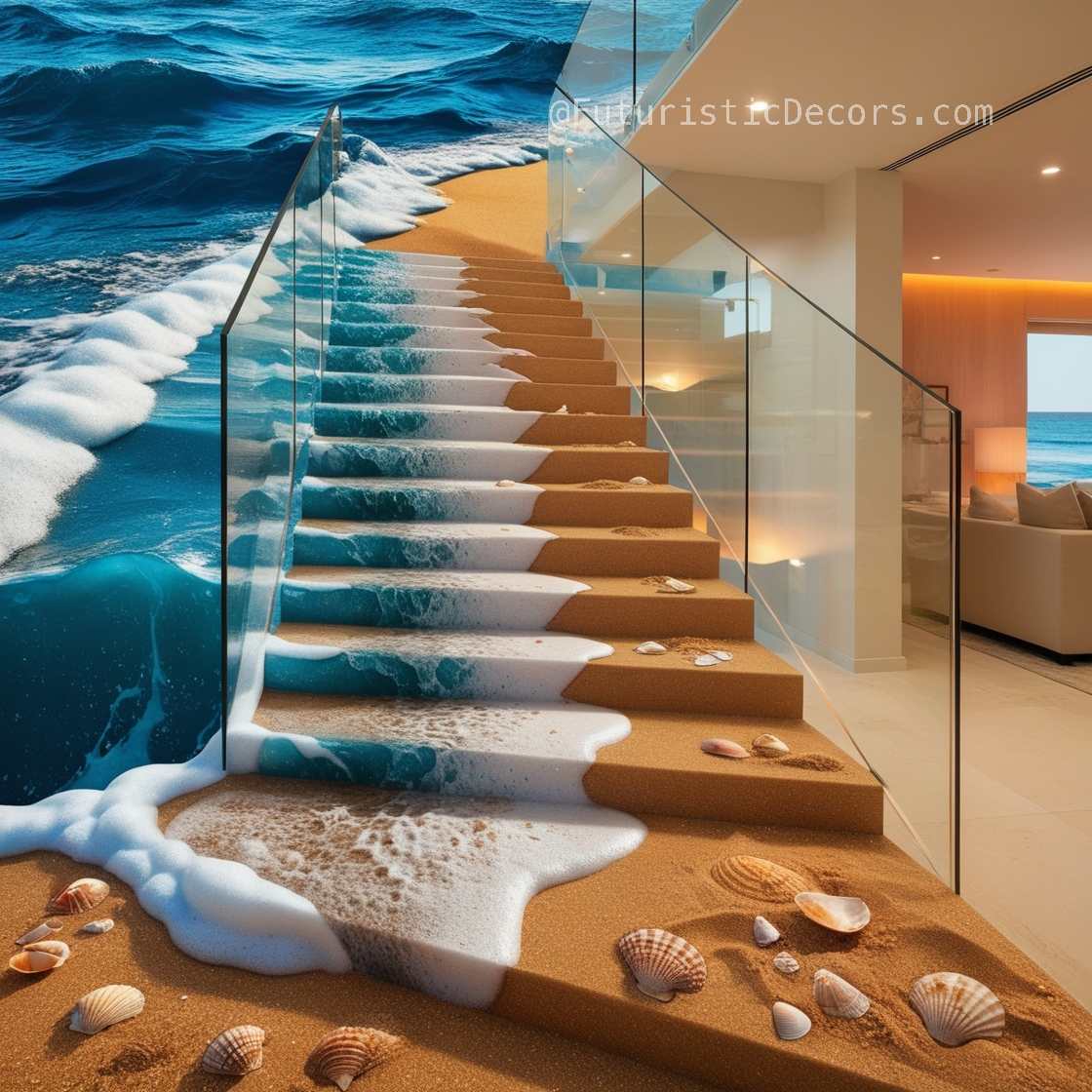
5. Smart Technology Integration
Smart technology enhances the interactivity and functionality of the Active Scene Staircase:
Automated Systems: Implementing automated lighting, climate control, and security features that can be managed through smart devices.
Data Analytics: Utilizing sensors to collect data on staircase usage patterns, which can inform further design improvements or enhance user experiences.
Voice Control: Enabling voice-activated controls for lighting, sound, and other interactive features, providing a hands-free and seamless user experience.
Case Studies: Active Scene Staircases in Action
To illustrate the transformative power of the Active Scene Staircase, let’s explore some real-world examples where this innovative concept has been successfully implemented.
1. The Luminary Residence
Located in a bustling metropolitan area, the Luminary Residence is a modern home that seamlessly integrates art and technology. The centerpiece of the home’s design is the Active Scene Staircase, which serves as both a functional element and a work of art.
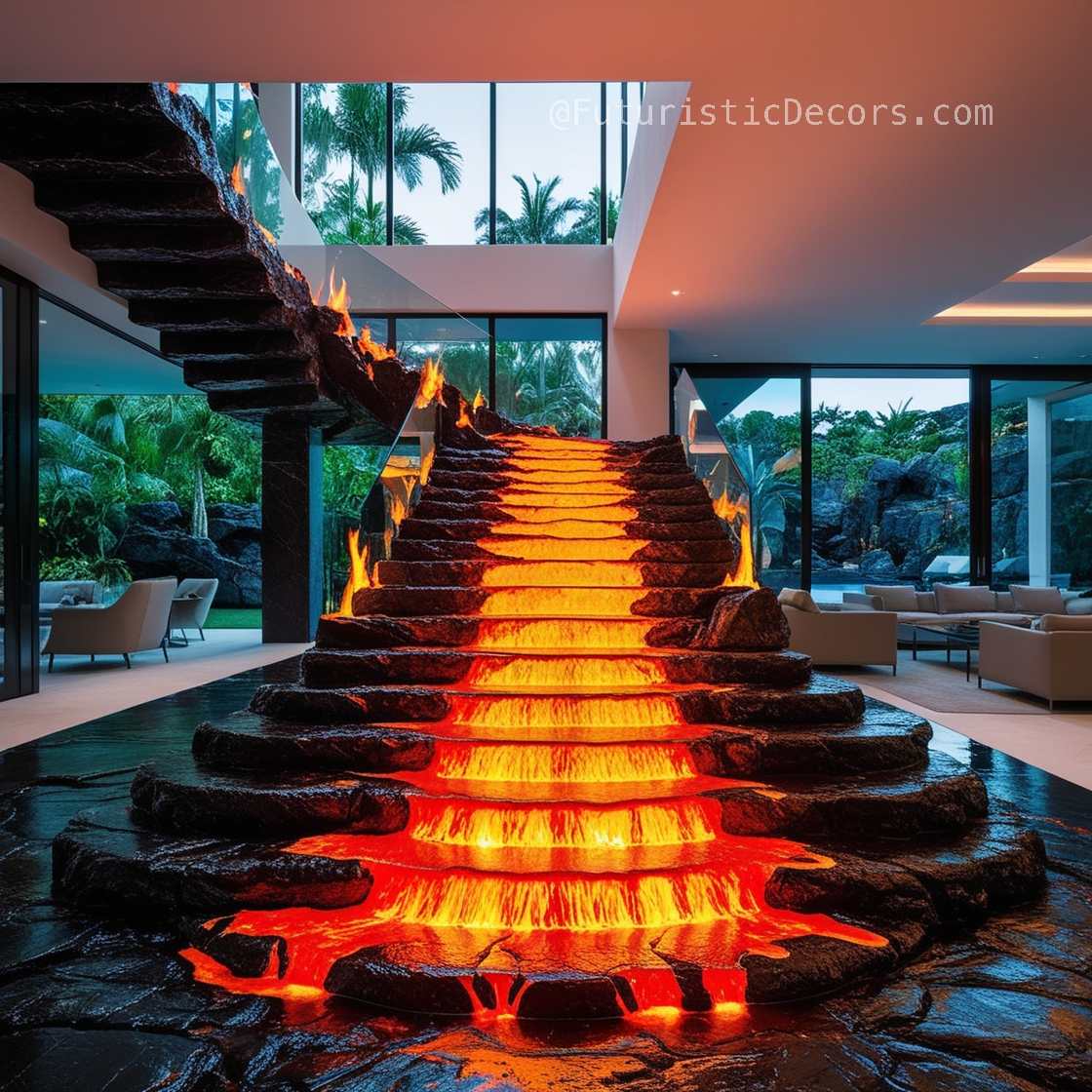
Design Features:
- Illuminated Steps: Each step is embedded with LED lights that illuminate sequentially as residents ascend or descend, creating a visually stunning pathway.
- Interactive Mural: The staircase wall features an interactive mural that changes its appearance based on the time of day, reflecting different artistic themes.
- Smart Controls: Homeowners can control the lighting and mural settings through a mobile app, allowing for personalized customization.
Impact:
The Active Scene Staircase not only enhances the home’s aesthetic appeal but also serves as a conversation starter for guests. Its interactive features provide a unique and engaging experience, making it a standout feature of the Luminary Residence.
2. The Urban Loft Office
In the heart of the city, an urban loft office space has redefined its interior design by incorporating an Active Scene Staircase that blends functionality with artistic expression.
Design Features:
- Sound-Responsive Lighting: The staircase is equipped with sound sensors that trigger lighting changes in response to ambient noise levels, creating a dynamic environment that adapts to the office’s energy.
- Art Installations: Sculptural elements and kinetic art pieces are integrated into the staircase design, adding depth and movement to the space.
- Collaborative Space: The lower landing of the staircase features a collaborative workspace, with built-in seating and interactive displays that facilitate teamwork and creativity.
Impact:
The Active Scene Staircase has transformed the office’s interior into a lively and inspiring environment. It not only serves as a functional passageway but also fosters a sense of community and creativity among employees.
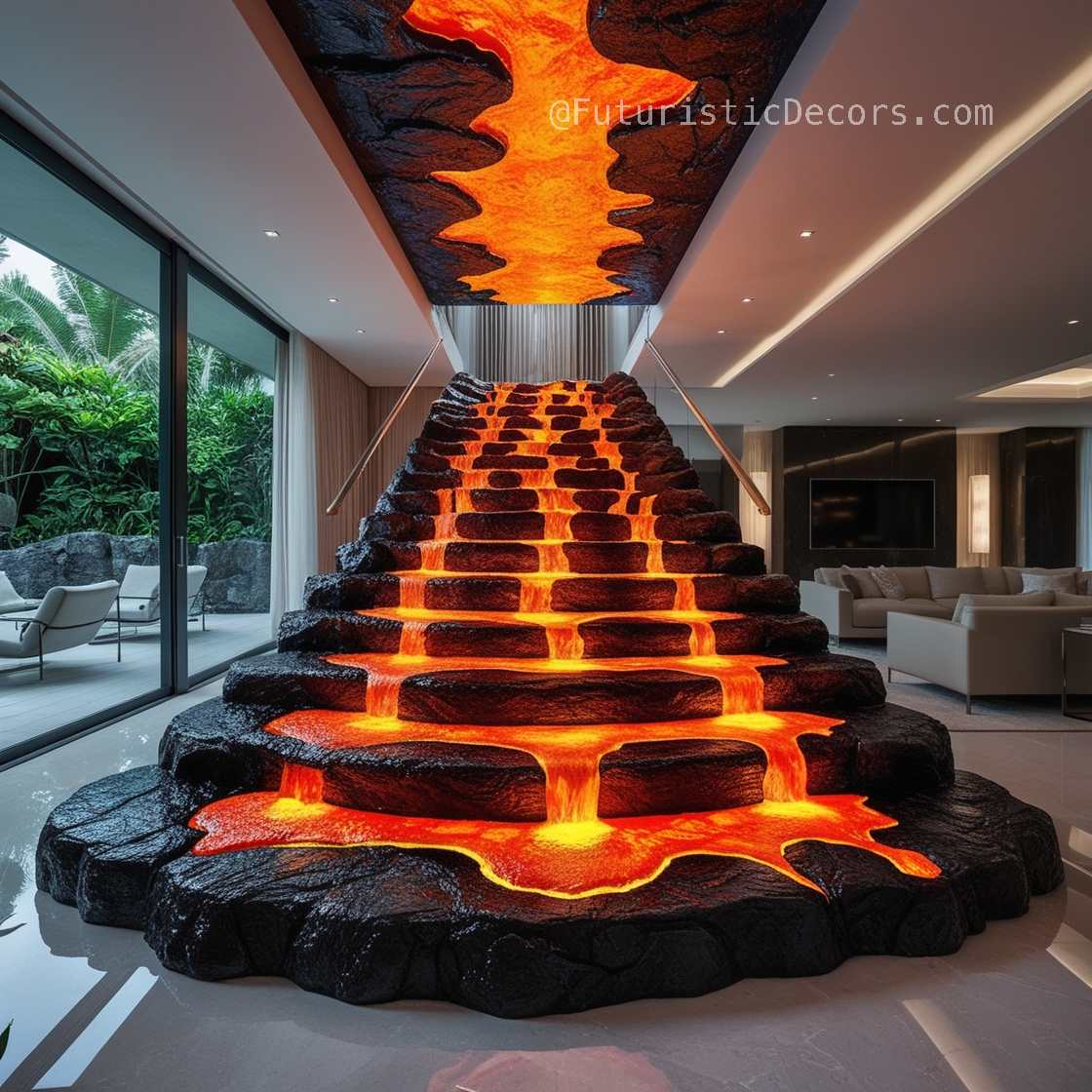
3. The Serenity Spa Retreat
At Serenity Spa Retreat, the Active Scene Staircase plays a pivotal role in creating a tranquil and immersive atmosphere for guests.
Design Features:
- Ambient Lighting: Soft, ambient lighting illuminates the staircase, creating a calming effect that aligns with the spa’s serene ambiance.
- Nature-Inspired Design: The staircase features natural materials and organic forms, evoking a sense of harmony with nature.
- Interactive Soundscapes: Subtle soundscapes, such as flowing water or gentle breezes, are integrated into the staircase, enhancing the sensory experience for guests.
Impact:
The Active Scene Staircase contributes to the overall tranquility of the spa, providing guests with a peaceful and aesthetically pleasing transition between different areas. Its thoughtful design complements the spa’s mission to offer relaxation and rejuvenation.
Designing Your Own Active Scene Staircase
Embarking on the journey to create an Active Scene Staircase involves several key steps. Whether you’re a homeowner, interior designer, or architect, the following guidelines can help you design a staircase that is both functional and artistically engaging.
1. Define Your Vision
Before diving into the design process, it’s crucial to define the vision and purpose of your Active Scene Staircase:
Aesthetic Goals: Determine the desired look and feel. Do you want a minimalist design, a bold artistic statement, or something in between?
Functional Requirements: Identify the primary functions the staircase should serve beyond its basic purpose. This could include lighting, sound, display areas, or interactive elements.
Space Considerations: Assess the available space to ensure that the staircase design complements the overall layout and flow of the area.
2. Choose the Right Materials
The choice of materials significantly impacts both the aesthetics and functionality of the Active Scene Staircase:
Structural Materials: Select materials that provide the necessary strength and stability, such as steel, wood, glass, or concrete.
Finishing Materials: Consider materials for finishes that enhance the visual appeal, such as polished metals, textured woods, or frosted glass.
Sustainable Options: Opt for eco-friendly materials to ensure sustainability and reduce environmental impact.
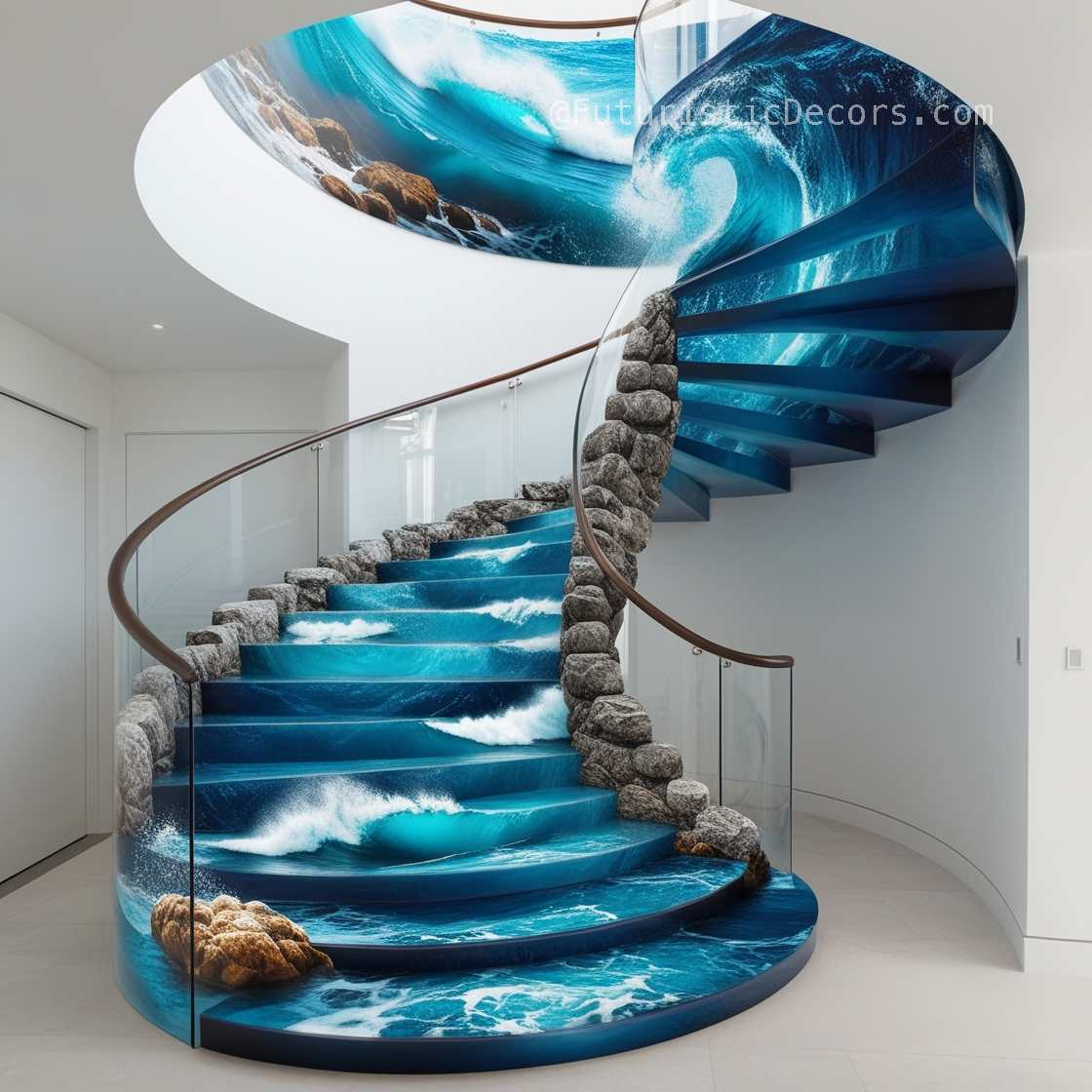
3. Incorporate Technology Thoughtfully
Integrating technology into the staircase design should enhance the user experience without overwhelming the aesthetic:
Lighting Systems: Choose lighting solutions that complement the design, whether it’s embedded LEDs, strip lights, or spotlight fixtures.
Control Systems: Implement intuitive control systems, such as touch panels, mobile apps, or voice commands, to manage lighting, sound, and other interactive features.
Sensor Integration: Utilize sensors for motion detection, ambient light adjustment, and other automated functions to create a responsive environment.
4. Focus on Ergonomics and Safety
While creativity is essential, ensuring the staircase is safe and comfortable to use is paramount:
Step Dimensions: Adhere to standard step dimensions to prevent tripping hazards and ensure ease of use.
Handrails: Install sturdy and ergonomically designed handrails that provide support and enhance the staircase’s aesthetic.
Non-Slip Surfaces: Use materials and finishes that offer non-slip properties, especially in areas prone to moisture or high traffic.
5. Personalize the Design
Personalization adds uniqueness to the Active Scene Staircase, making it a true reflection of the space and its inhabitants:
Custom Art Pieces: Incorporate custom artworks, murals, or sculptures that align with the overall theme of the space.
Color Schemes: Select color palettes that resonate with the surrounding decor, allowing for seamless integration and visual harmony.
Interactive Features: Tailor the interactive elements to suit the preferences and behaviors of the users, creating a more engaging experience.
6. Collaborate with Professionals
Designing an Active Scene Staircase often requires the expertise of various professionals:
Architects and Designers: Collaborate with architects and interior designers to ensure the staircase integrates seamlessly with the overall space.
Technologists: Work with technology specialists to implement interactive and smart features effectively.
Artists: Partner with artists to incorporate creative and artistic elements that enhance the staircase’s visual appeal.
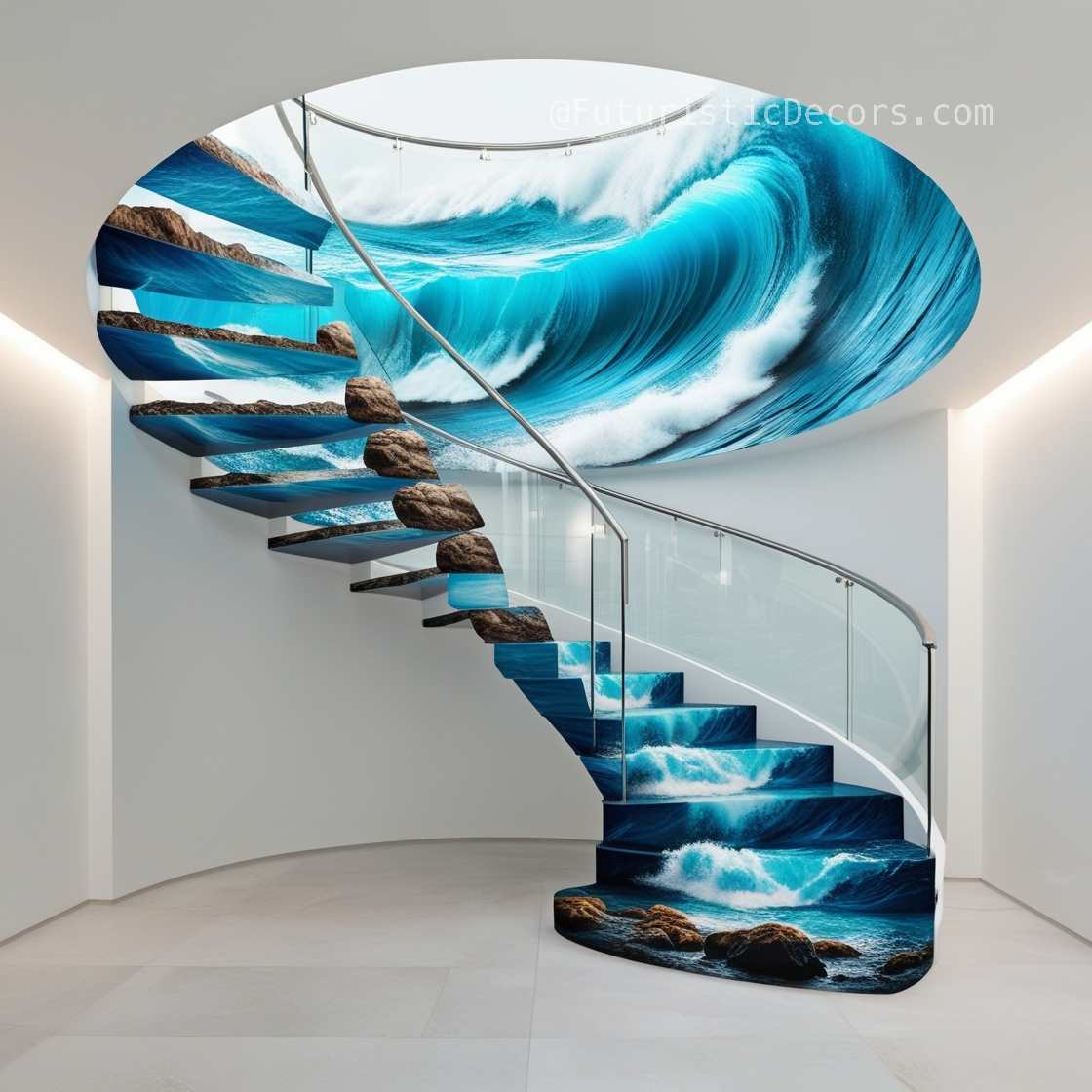
7. Plan for Maintenance and Upkeep
To ensure the longevity and functionality of your Active Scene Staircase, consider maintenance needs:
Durable Materials: Choose materials that are easy to clean, maintain, and resistant to wear and tear.
Accessible Technology: Design the staircase in a way that allows for easy access to technological components for repairs and upgrades.
Regular Inspections: Schedule regular inspections to identify and address any issues promptly, ensuring the staircase remains safe and functional.
Future Trends in Active Scene Staircase Design
As technology and design philosophies continue to evolve, the Active Scene Staircase is poised to incorporate even more innovative features. Here are some future trends that are likely to shape the next generation of functional art staircases:
1. Virtual and Augmented Reality Integration
The integration of virtual and augmented reality technologies will allow Active Scene Staircases to offer immersive experiences. Users could interact with virtual displays projected onto the staircase surfaces or engage with augmented reality elements that change based on their movements and interactions.
2. Sustainable and Smart Materials
Advancements in materials science will introduce new sustainable and smart materials into staircase design. These materials could include self-healing surfaces, energy-harvesting components, and environmentally friendly composites that reduce the carbon footprint of staircase installations.
3. AI-Driven Personalization
Artificial intelligence will play a significant role in personalizing the Active Scene Staircase experience. AI algorithms could learn user preferences and behaviors, automatically adjusting lighting, soundscapes, and other interactive features to create a tailored environment.
4. Multi-Sensory Experiences
Future Active Scene Staircases will likely incorporate multi-sensory experiences that engage not just sight and sound, but also touch, smell, and even taste. This holistic approach will create more immersive and memorable interactions for users.
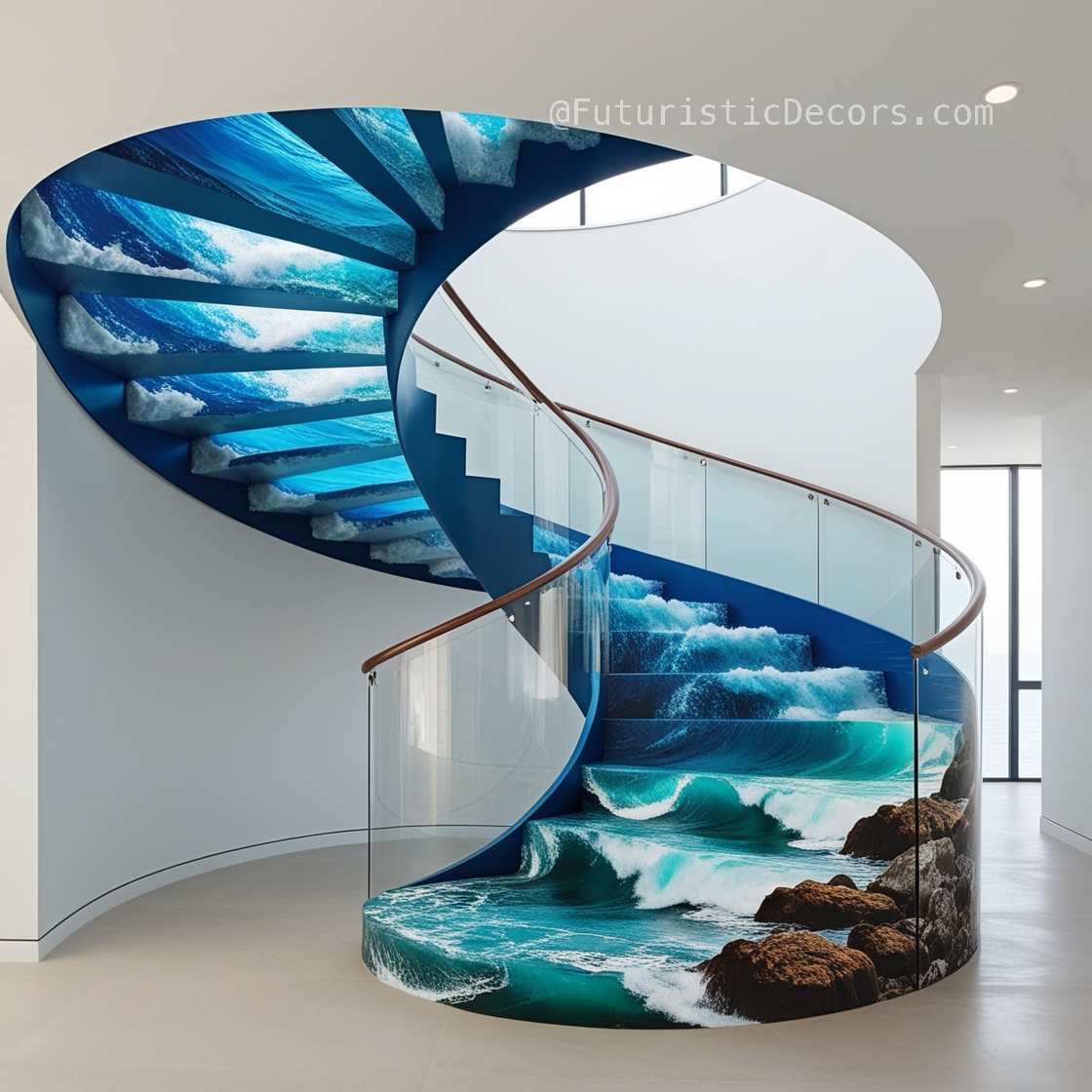
5. Modular and Adaptive Designs
Modular designs will allow for greater flexibility and adaptability in Active Scene Staircase installations. Users could easily reconfigure or update their staircases to match changing needs, trends, or personal preferences without extensive renovations.
6. Enhanced Connectivity
With the rise of the Internet of Things (IoT), Active Scene Staircases will become even more connected, allowing seamless integration with other smart devices and systems within a space. This connectivity will enable coordinated interactions and synchronized environments across different areas of a building.
7. Health and Wellness Integration
Incorporating health and wellness features, such as step-count tracking, posture correction, or even integrated exercise equipment, will make Active Scene Staircases not only aesthetically pleasing but also beneficial for users’ physical well-being.
Challenges and Considerations
While the Active Scene Staircase offers numerous benefits and exciting possibilities, there are challenges and considerations to keep in mind during its design and implementation.
1. Cost Implications
Incorporating advanced technologies and custom artistic elements can significantly increase the cost of staircase design and installation. It’s essential to balance the desired features with budget constraints, prioritizing elements that offer the most value and impact.
2. Technical Complexity
Integrating multiple technologies into a staircase design can introduce technical complexities. Ensuring that all components work seamlessly together requires careful planning, skilled professionals, and ongoing maintenance to prevent and address technical issues.
3. User Accessibility
While interactive and high-tech features enhance the user experience, it’s crucial to ensure that the staircase remains accessible to all users, including those with disabilities or limited technological proficiency. Designing with inclusivity in mind ensures that the Active Scene Staircase benefits everyone.
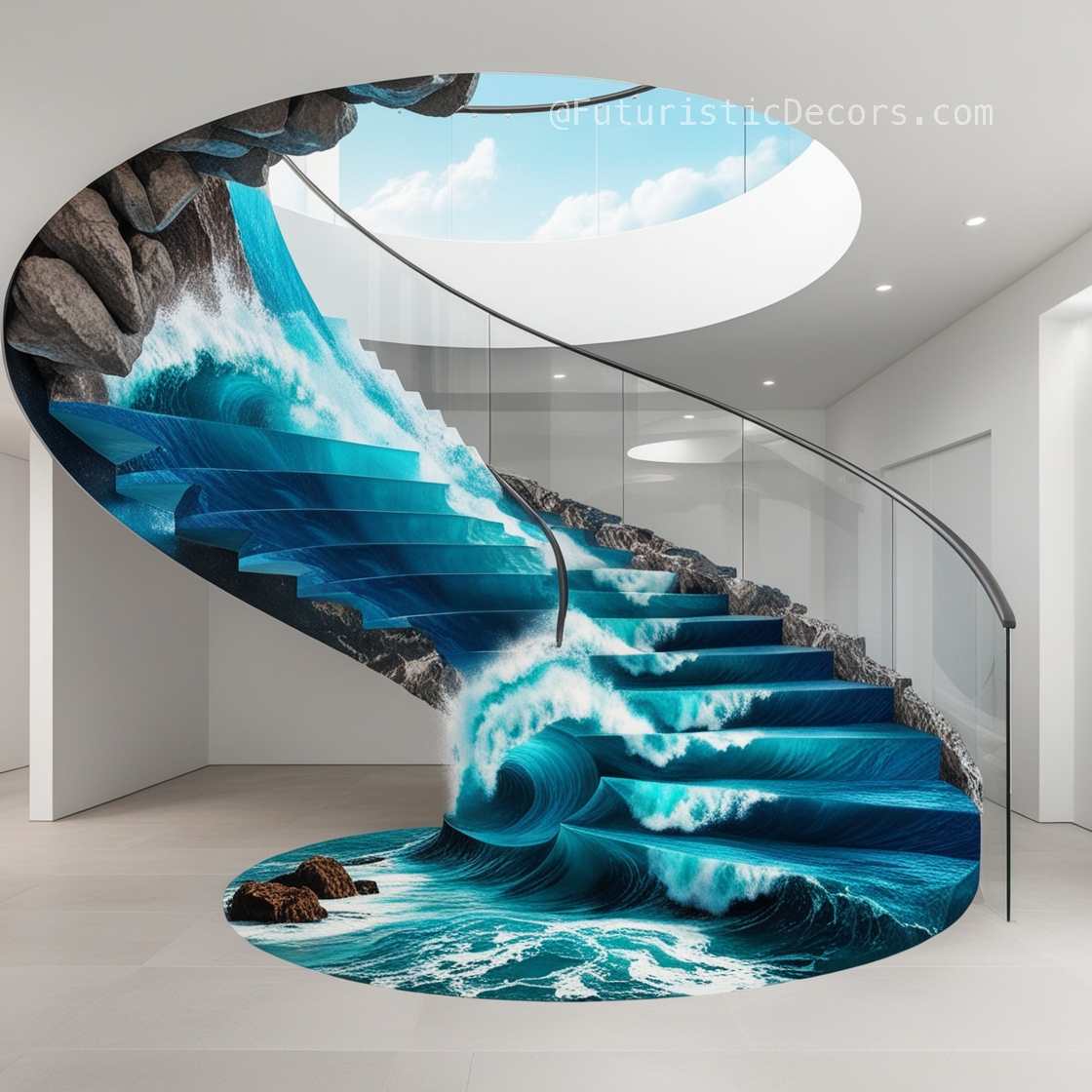
4. Aesthetic Balance
Striking the right balance between functionality, technology, and artistic expression can be challenging. Overloading the staircase with too many features can detract from its aesthetic appeal and lead to a cluttered or overwhelming design.
5. Maintenance and Durability
Advanced features and interactive elements require regular maintenance to remain functional and safe. Designing for durability and ease of maintenance is essential to ensure the long-term success of the Active Scene Staircase.
6. Integration with Existing Structures
Retrofitting an Active Scene Staircase into an existing structure can pose challenges, particularly in terms of space constraints and compatibility with current architectural elements. Careful planning and possibly structural modifications may be necessary to achieve the desired outcome.
————–
The Active Scene Staircase represents a bold and innovative step forward in architectural and interior design, transforming traditional stairways into dynamic, interactive, and aesthetically captivating elements. By seamlessly blending functionality with artistic expression and cutting-edge technology, these staircases elevate the user experience, making stairways not just a means of movement but a focal point of design and interaction.
As we move towards more integrated and immersive living and working spaces, the Active Scene Staircase stands as a testament to the endless possibilities that emerge when creativity meets technology. Whether in residential homes, commercial offices, or public spaces, the Active Scene Staircase has the potential to redefine how we perceive and interact with one of the most fundamental architectural elements. Embracing this innovative approach opens doors to endless creative possibilities, allowing designers, architects, and users to collaborate in creating spaces that are not only functional but also inspiring and engaging. As technology continues to advance and design philosophies evolve, the Active Scene Staircase will undoubtedly continue to transform stairways into functional art, shaping the spaces of the future.


